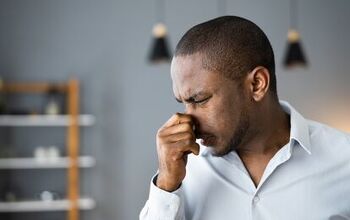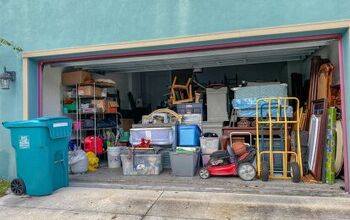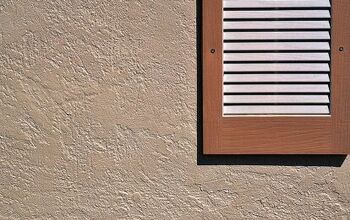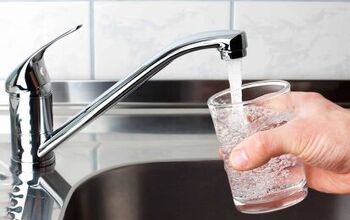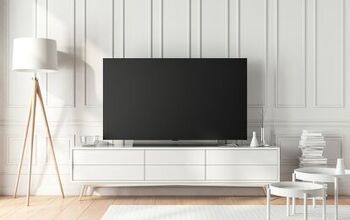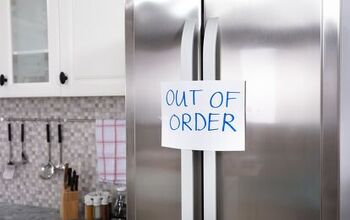House Smells Like Chlorine? (Possible Causes & Fixes)

The smell of bleach can make you feel like you are in a clean and sterile environment. In fact, many people love when a kitchen or bathroom has a slight lemon bleach fragrance that lingers long after cleaning. What about when your house smells like bleach and you have no idea why?
When your house smells like bleach, the first step you should take to identify the problem is to rule out a dangerous chlorine gas leak. Chlorine gas normally forms when bleach is mixed with chemicals it should not be mixed with. Other possible sources of the bleach smell include chemicals spilled in the home, chlorine based detergents, the smell of toilet cleaners or even your pool chemicals.
While the smell of bleach may often mean a clean home, if you do not know why your home smells like bleach you should investigate further. Bleach smells can become off-putting and can even be incredibly toxic, depending on their source.
Rule Out A Dangerous Chlorine Gas Leak
Chlorine is a very popular chemical used frequently in everyday life. When used properly chlorine is highly effective at killing bacteria, decontaminating swimming pools and even purifying the water you drink. If chlorine is mixed with certain other chemicals, however, you can create chlorine gas. Chlorine gas is highly toxic and can have very harmful consequences.
Chlorine gas is likely to have formed if two chemicals were mixed together that should not have been mixed. When inhaled, chlorine can cause shortness of breath, vomiting, coughing, feelings of suffocation, and chest pain. It’s best to remember that each of these symptoms of chlorine gas exposure could have a different cause.
As soon as you notice your house smells like chlorine, seek help from professionals to remove the hazardous gas and prevent harmful exposure to the chemical.
6 Common Causes Of Chlorine Smell In Your House
Once you have ruled out the possibility of a dangerous chlorine gas threat in your home, you can safely start to determine the cause of the chlorine smell in your home. While there are several possible sources of this smell, all of the potential culprits are easy to locate and identify. See if one of the six following popular causes of chlorine smell in homes is the reason.
1. Spillage Under Cabinets
When chlorine is stored in the bathroom, in acrylic kitchen cabinets, or the laundry area, leakage is possible. It’s difficult to detect such leakages because the bleach tends to seep into the bottom boards of the cabinets.
When you notice the pungent smell of chlorine in your house, one of the first places to check is underneath the kitchen, bathroom, and laundry area cabinets. The boards are often lightly nailed down, making it relatively easy for you to remove them and check underneath. Wood is absorbent, thus the need to carefully examine the cabinets for signs of spillage.
If the chlorine odor in your house is caused by a leakage in the cabinets, the solution is to remove them to air out for a couple of days. If the cabinets are in tightly packed spaces, consider unloading them, then leave them open. In a few days, the smell will dissipate.
2. Bleach Spillage on Walls and Floor
Your house could smell of chlorine if you used chlorine in the past to remove mold and mildew that was growing on the walls. Ideally, the smell should dissipate by using chlorine to eliminate mold and mildew. However, if the smell persists, it could be because of the bleach penetrating cracks on the floor and walls.
Even if the smell goes away, it’s likely to be reactivated whenever the area gets moist. Therefore, it’s advisable to avoid using chlorine to remove mold and mildew. If you use chlorine, avoid pouring it liberally into cracks around the edges of your walls or floor.
Avoid using large quantities of chlorine when cleaning the bathroom, kitchen, basement, or any other space that tends to be moist. It will penetrate cracks, however much you wipe it off. In addition, when it comes into contact with water, there will be a pungent smell in your house.
3. Toilet Bowl Cleaner Tablets
Many homeowners use chlorine tablets to clean their toilets. Some even toss chlorine tablets into toilet tanks to kill any unpleasant odors. However, this can leave you with an unpleasant smell around your house. If you’ve just moved into a new home and you notice there’s a lingering chlorine odor in the air, one of the places you should check is the toilet tank or sump pump pit.
The previous owner may have used chlorine tablets to dissipate unpleasant toilet odors or odors from stagnant under-slab moisture or water in the septic tank. Getting rid of these tablets can be quite a challenge, but it’s best to avoid using chlorine in your toilet tank once you do. The following video explains why it’s best not to use these tablets.
4. Malfunctioning Swimming Pool Chlorination Systems
Most residential swimming pools feature a chlorination system for purifying the water. However, if the pool’s chlorination system malfunctions, it can release significant quantities of chlorine into the water. Thus, there’s likely to be a lingering chlorine odor in your home.
If you suspect that a malfunctioning chlorination system causes the scent in your pool, the first step to take is switching off the system for a couple of days to see whether the smell will dissipate. When it doesn’t, have an expert check out the system to pinpoint further problems.
If you use tablets or powder chlorine for your home swimming pool, it’s advisable to check where it’s stored to ensure none of it is leaking into the swimming pool. Also, check the pool acid storage to ascertain that there are no leaks. Chlorine gas can leak if dry hypochlorite becomes wet, thus the need to ensure there are no leaks in your chlorination system.
5. Chlorine-Based Detergents
Your house could have a lingering chlorine odor because you use chlorine-based dishwasher detergents. As you flush the detergents down your kitchen sink over time, they will leave a distinctive chlorine odor in the kitchen and other areas of your house.
If you use chlorine-based detergents in your dishwasher, the chlorine will seep into the air in your house as the machine vents during operation. If you hate the smell of chlorine, it’s best to avoid using chlorine-based detergents around your house. There are dozens of alternative products that can serve you without leaving a lingering odor in your house.
6. Malfunctioning Electrical Equipment
Faults in electrical equipment can also cause a sharp, chlorine-like smell in your house. For example, some electric transformers and brush-type motors put out a sharp, biting smell similar to chlorine gas. If you notice the smell, consider checking the electric motors installed in your home, including the furnace blower, AC, doorbell, reefer, water recirculation pump, and boiler transformer.
If the motors in the equipment overheat or malfunction, they will give a stinging odor, more so when running. Turning off the equipment for a day or two will see the odor dissipate. However, you should still have the equipment checked by a technician.
How to Keep Your Home Free of Chlorine Odor
If you find the chlorine odor unpleasant, you’re not alone. Thankfully, there are several preventive measures you can take to ensure your house stays odorless. Remember, the chlorine odor often results from accidental spills and the mixing of bleach and other chemicals. That said, here’s how to keep your home free of chlorine odor:
Avoid Mixing Bleach With Other Chemicals
There’s likely to be a pungent smell in your home if bleach mixes intentionally or accidentally with other chemicals, including household cleaners containing acids and ammonia. This will not only cleave an unpleasant pungent in your house but also comes with the risk of injuries when inhaled.
Products that shouldn’t be stored or even mixed with chlorine include:
- Vinegar
- Some window and glass cleaners
- Types of paints
- Some bowl cleaners
- Hydrogen peroxide
When chlorine mixes with these products, chlorine gas will be produced, thus the pungent smell in your house. Check this out if your house smells like mothballs.
Pool Chemicals Should Be Used Safely
Chlorine is arguably the most common swimming pool cleaner. It helps in maintaining water quality by killing germs and bacteria in pools. However, to keep the overbearing odor at bay when using chlorine in your home pool, it’s best to use the chemical safely. Here are some tips for doing so:
- Follow the manufacturers’ instructions regarding the storage and use of pool cleaners.
- When using chlorine and other pool cleaners, choose a well-ventilated area. Ensure the fumes don’t get to your house.
- Store the chemicals in a cool, dry, and well-ventilated place. If stored improperly, chlorine can start producing a pungent odor.
- Always keep chlorine dry. If the chemical gets moist, it will release chlorine gas, which will undoubtedly get to your house. Ideally, chlorine should be stored in its original container and closed tightly.
- Acids should be kept from chlorine products and liquids.
- Consider storing chlorine low to the ground so that it doesn’t spill onto items stored below them if the containers tip over accidentally.
Key Takeaways
If your house smells like bleach, the first thing you should do is ensure you do not have dangerous chlorine gas in your home. This gas is normally caused by the mixing of chlorine with a chemical it should not be mixed with. Once you rule this dangerous threat out, make sure there are no bleach spills in areas where cleaning products live.
If you have a pool ensure that all pool chemicals are stored and mixed properly. The smell may be something as simple as a new detergent or cleaning product, so be sure to check all your labels carefully.
Related Articles

We are a team of passionate homeowners, home improvement pros, and DIY enthusiasts who enjoy sharing home improvement, housekeeping, decorating, and more with other homeowners! Whether you're looking for a step-by-step guide on fixing an appliance or the cost of installing a fence, we've here to help.
More by Upgraded Home Team











